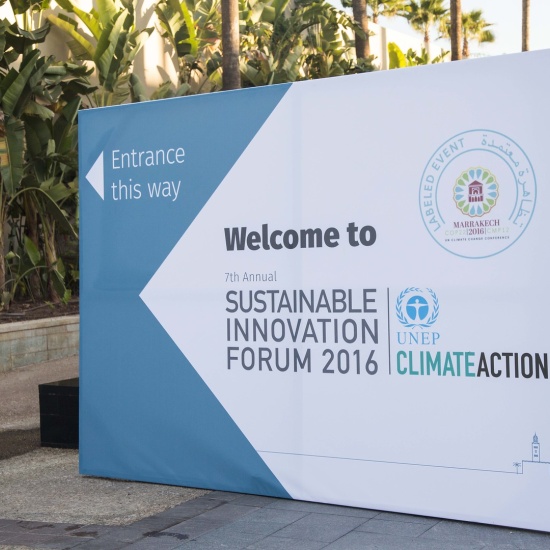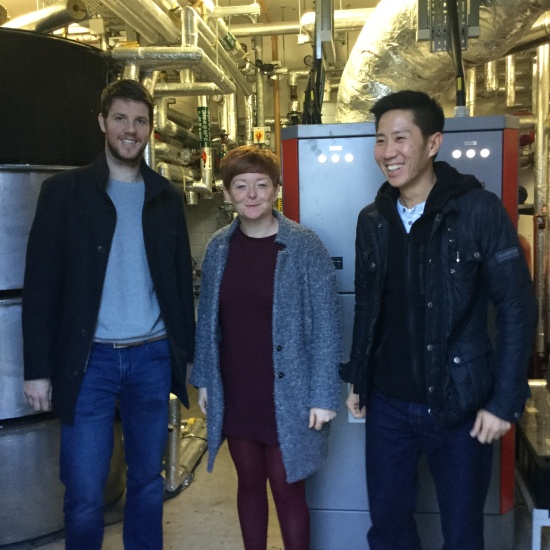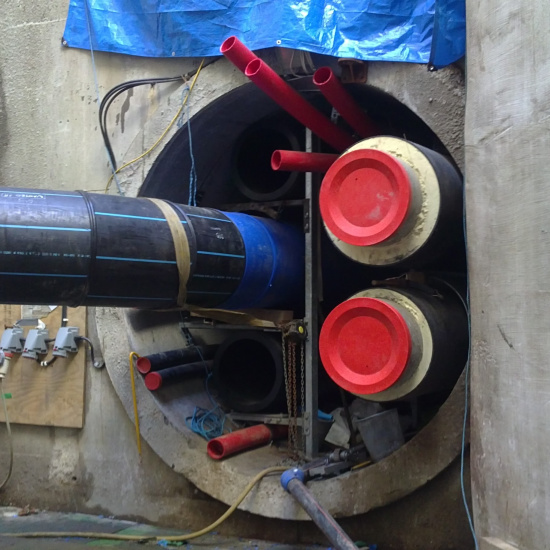Emissions and Optimism - Uncomfortable Bedfellows
Margie McCarthy, Director of Research and Policy Insights at SEAI, shares a personal perspective on the impact of the emissions data from the Interim Energy Balance for 2022.
I'm an optimist. It goes to my core.
Last weekend my youngest turned 14. I am immensely proud of him and my other 'baby' who is about to turn 16. Like most parents I want the best for them. I am a mama bear at heart, who would do anything to protect them. It's because of this that it takes all my might to stay positive and keep the optimism alive.
Back in May 2023, SEAI published the Interim Energy Balance for 2022, which saw significant increases in transport energy, decreases in heat energy and an indication that our overall energy emissions were down by 1.9% on 2021. A sign that we were beginning to go in the right direction, but nowhere near where we need to be. Every year that we underachieve against our carbon budgets makes the challenge much harder for future years.
Since then, Ireland's emission projections indicate that based on our current actions, policies, and plans, we will achieve just 29% reduction in our carbon emissions nationally by 2030, well short of the targeted 51%. The planet saw its hottest day on record, and unfortunately, it's a record that will continue to be broken. On my morning walk listening to the radio, the Irish journalist and environmental campaigner John Gibbons said our addiction to cars and cheap flights is literally cooking the planet.
I continued to listen on that walk, during which the news spoke of the heatwave in Southern Europe, and how parts of the Canary Islands are being evacuated this week due to wildfires. It reminded me of Kevin Anderson's sobering UN University lecture 'True Paradise - Where we are heading' where he notes that as a species we may be able to cope with one, maybe two of these disasters, but we cannot cope with multiples of them, happening all at one time. Yet this is what we are facing, if we don't act now.
The EPA climate attitudes study shows us that people want to act, and are consistent in their concerns, regardless of whether they reside in urban or rural locations. In a comprehensive survey of householders, setting a baseline to evaluate the impacts of community measures in the Renewable Electricity Support Scheme, SEAI found there are high levels of support for renewable energy generation from wind and solar projects. The EU has backed significant legislation to protect nature. We want to do the right thing.
So to return to my optimism, and to borrow from someone I really admire, former Executive Secretary of the United Nations Framework Convention on Climate Change (UNFCCC) 2010-2016 and fellow stubborn optimist Christiana Figueres, - "Optimism is not a denial of reality.... It is the ability to face the reality with strength, knowing the science, and at the same time have the gritty determination to tap into our own conviction that none of us individually but all of us collectively have the capacity to change the trajectory that we are currently on.'
The interim energy balance for 2022 tells that story somewhat.
Firstly, it tells us that as a nation we are back on the roads and in the skies. That, while we are technically on track in 2022 against our budgeted transport emission ceiling, that really that's because of the unprecedented 'brake' placed on our movements during COVID travel restrictions. Enduring those tough years resulted in our ability to deliver the emissions reductions needed for travel.
Collective action has proven it works.
It was extreme, but we did it for the period of time necessary to protect each other.
Yet SEAI has now observed a significant increase in demand for road diesel, motor petrol and jet fuel. We are slipping back into old habits that we, and the planet, cannot afford.
But the interim 2022 data also showed significant reductions in natural gas, heating oil and solid fuels that we use to heat our buildings and water, and for industrial processes. So big, at 1.1 mega tonnes of CO2, that it was responsible for our overall energy emissions falling. It is most likely that the primary driver was the increased price of fuel due to the invasion of the Ukraine and the resultant ener gy crisis.
So again, we experienced a global crisis, and an indirect result was collective action delivering emission reductions, across homes and businesses. Necessity.
We must ensure that no one goes cold and or is left behind in this transition, but it is changes adopted by businesses and homes across Ireland in 2022 at speed that are the types of changes we need to make a habit of and sustain from now on. They need to be long term, and happen outside of global shocks, unless you rightly view the inhabitability of our planet as an impending shock!
We can see growing numbers of heat pumps and solar PV installed in homes and businesses and more EVs on our roads. People actively Reducing Their Use.
Our choices are important.
We need to eliminate fossil fuels, completely - it's truly the only way.
This choice means an Ireland in 2050 which is thriving, for everyone, our economy, our society, the space we inhabit and the nature we are part of and live with.
The choice is ours. Have we got it in us to collectively change? It means rethinking, how you and I move, what we buy, who we buy it from, what we eat, how much, where and why we use energy. There are supports there including at SEAI where we offer a range of Government programmes to help householders, businesses, and communities to reduce their fossil fuel use. For information on these supports and advice on how to reduce energy bills, visit www.seai.ie.
I don't claim to be an energy saint, few of us are, our emissions say otherwise. But now we know what making better choices will deliver and avoid. We need to help each other to make those choices and expect it in the decisions we and others make for tomorrow. Some will and can do it in giant steps, others in iterative improvements. It all counts and unfortunately, nowadays tomorrow is the latest we can leave it.
On that same walk that morning, I passed a car park that has been there as long as I can remember. It had big, beautiful trees all around it's boundary wall. The wall had started to shift due to the roots of the trees. The solution taken was to cut down the trees. As I walked past, I found it ravaged.
It's time to rethink.
Maybe it's time to move the wall.




